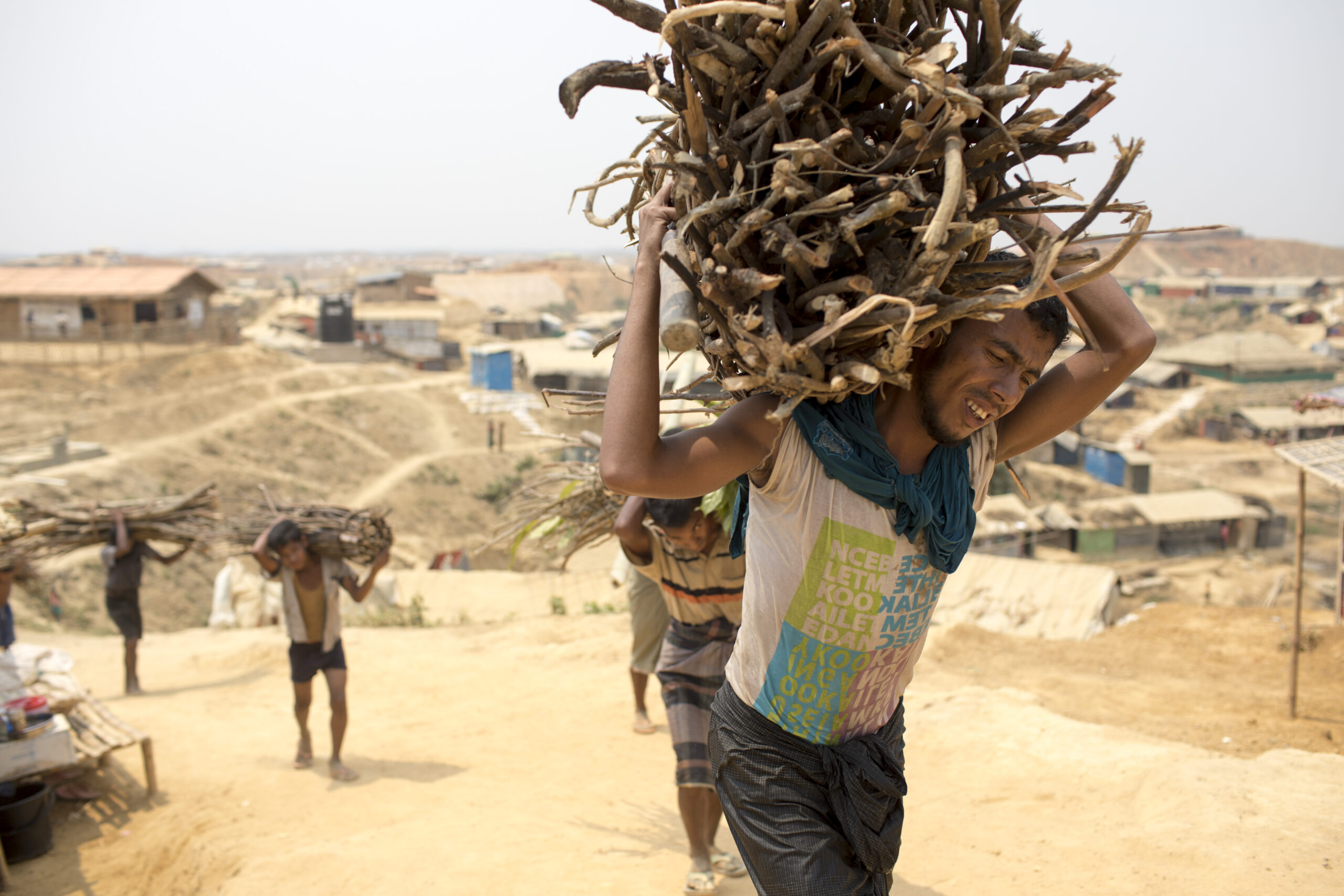This blog is part of our series developed in collaboration with the Reiff Center for Human Rights and Conflict Resolution at Christopher Newport University.
Cox’s Bazar, a town located on the southeast coast of Bangladesh, is home to the largest refugee settlement in the world. Nearly three-quarter million Rohingya refugees, displaced by ethnic cleansing that began in Myanmar in 2015, currently reside in Cox’s Bazar. In November of last year, two Rohingya men attempted suicide in the camp. In addition to facing political instability and indecision about repatriation while living in the camp, these men feared persecution from the Myanmar government if they attempted to return.
These two suicide attempts demonstrate the urgent need for the provision of professional psychosocial services to the Rohingya residing in refugee camps. International relief focuses on critical shelter, food, and health needs, but the psychosocial needs of the Rohingya have gone largely underreported and unrecognized. Although understanding that mental health is an important element of overall public health has risen globally, a focus on the mental health of refugees has yet to become a priority for many international policy makers and aid agencies.
Ensuring adequate access to mental health facilities or service providers in camps would improve overall health and well-being. But with extreme overcrowding, there are constraints on the availability of space to provide this critical service. Safe spaces play an important role in encouraging discussion of sensitive topics, particularly concerning mental health and the ongoing psychosocial challenges confronting the Rohingya. Moreover, mental health disorders, including post-traumatic stress disorder (PTSD), are triggered by daily stressors in the camps. These stressors may include feeling a lack of safety and a general feeling of uncertainty about the future. Additionally, due to the overcrowding, communicable diseases and living tensions are severely increased. With these stressors affecting refugees, they are not able to appropriately discuss, process, and address the traumas they have experienced. Access to safe spaces, where concerns can be freely expressed, can play a pivotal role in the treatment and healing of the Rohingya.
Without mental health services, some refugees may be at risk of additional trauma. The atrocities refugees have seen and experienced, including forced removal from homes and sexual violence, raise concerns about PTSD. International aid agencies are well-positioned to confront this reality. While refugee camps are designed for a finite amount of time, particularly for the Rohingya who are facing potential repatriation, an explicit mental health plan and corresponding services are needed. These services would provide the refugees with the tools and resources to manage mental health disorders for the rest of their lives. One example of such a plan is outlined by the document “Adverse Community Experiences and Resilience” provided by the Prevention Institute, a California-based nonprofit organization that addresses the health and safety of communities who have endured acute crisis. A similar plan could be adapted to suit the needs of the Rohingya.
Providing mental health services may not be enough. One of the main challenges for connecting individuals to services is the cultural stigma associated with asking for help. Moreover, language and cultural barriers may discourage the Rohingya from seeking quality care in camps or upon their return. A recent article published by the American Psychological Association notes that many western-oriented depression indexes are not well-tailored to the refugee context. As a result, international service providers would benefit from receiving cultural literacy training and guidance on adapting international best practices to the local context. This could be done through e-mental health interventions, including websites and smartphone applications that provide easy access to mental healthcare. E-interventions could also help those in conflict zones, remote areas, and internally displaced people (IDPs) who are beyond the grasp of humanitarian assistance. Western psychologists have begun using e-interventions to train camp workers in psychology and to adapt illustrated indexes with which the Rohingya population can identify.
Counterpart International has worked with internally displaced populations and refuges in Afghanistan, Iraq, Yemen, Papua New Guinea, and throughout Central Asia and the Caucasus. We have developed an Inclusive Social Accountability Framework to assist displaced populations in settlement and assimilation. This development framework integrates elements of social inclusion and community accountability into one systemic approach. Our method works to hold governments accountable for delivering higher quality and equitably distributed social services – particularly to marginalized populations. This can be seen through Counterpart’s work in Papua New Guinea which has built the capacity of women as effective change agents; provided support services for victims of violence; and strengthened CSOs working in trauma counseling and mental health services, family and sexual violence prevention and treatment, and women’s policy.





